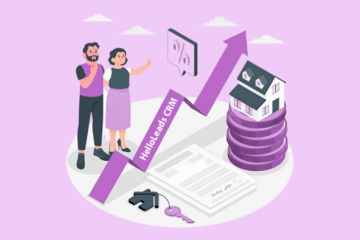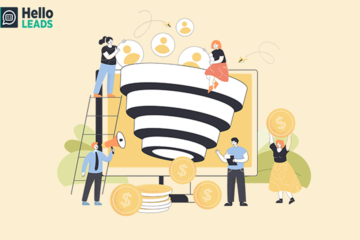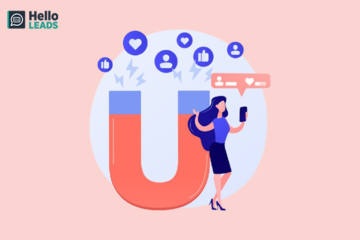
In the ever-evolving realm of lead generation, businesses are embracing cutting-edge solutions, and leading this transformative wave is the formidable chatbot. Far more than a passing trend, chatbots are asserting themselves as a revolutionary influence, reshaping the landscape of brand-customer interaction. These digital assistants transcend mere functionality; they are strategic assets that offer a myriad of advantages. Unlike conventional methods, chatbots offer unparalleled user engagement, fundamentally altering how brands and customers communicate. Their impact is not confined to improved interactions, chatbots have proven to be a cost-effective means of lead acquisition, with a substantial 55% of AI chatbot users reporting a surge in high-quality leads. Embracing automation, companies are integrating chatbots to provide round-the-clock support, deliver swift responses, and craft personalized interactions even in the absence of a readily available sales team.
Embarking on an exploration of the chatbot realm, this blog endeavors to reveal the multifaceted role these digital assistants play in lead generation. More than a mere technological discourse, it’s a journey into the transformative advantages that position chatbots at the forefront of modern business strategies.
What are lead-generation chatbots?
Lead-generation chatbots, powered by artificial intelligence, are intelligent tools reshaping customer interactions. Their core purpose is to adeptly gather customer information, guide users through the purchase journey, and evaluate lead qualifications.
Going beyond conventional methods, these chatbots excel not just in data collection but also in creating engaging interactions that captivate potential customers, maintaining their interest round the clock. In essence, a lead generation chatbot serves as a conversational marketing tool, utilizing its AI foundation to identify potential customers, gather crucial contact details, and ignite interest in a business’s products or services. Whether navigating a predetermined conversational flow or adapting to user input, these chatbots significantly contribute to enhancing the lead generation process. Their ability to offer personalized interactions, coupled with continuous availability, positions them as indispensable assets in the journey towards customer engagement and lead conversion.
Why are chatbots important to your lead generation strategy?
Chatbots are indispensable in elevating your lead generation strategy, providing a myriad of advantages that significantly contribute to the overall success of your marketing endeavors. Here’s why integrating chatbots is paramount to your lead generation strategy:
1. 24/7 Availability
One of the key advantages of chatbots is their round-the-clock availability. They ensure that potential leads visiting your website can engage in conversations and access information anytime, regardless of business hours. This constant availability maximizes the chances of capturing leads, especially in different time zones.
2. Instant Response

Chatbots provide instantaneous responses to customer queries. In a world where users expect quick answers, the speed of response significantly impacts the user experience. A prompt and helpful chatbot can capture leads’ attention and interest before they consider looking elsewhere.
3. Efficient Qualification
Lead generation chatbots boast the capability to efficiently qualify leads. Tailoring specific questions to align with your business objectives, they adeptly collect valuable information about potential customers. This data proves instrumental in gauging the lead’s level of interest, facilitating more targeted and personalized follow-ups.
4. Enhanced User Engagement
Chatbots create interactive and engaging experiences for users. By adopting a conversational approach, they make the interaction more enjoyable and user-friendly. Engaged users are more likely to provide information willingly, making the lead generation process smoother and more effective.
5. Personalization
AI-powered chatbots excel in analyzing user data, delivering personalized responses that enhance the connection with potential leads. The infusion of a personal touch in interactions is instrumental in building relationships. In the realm of modern marketing, personalization stands as a key element, and chatbots play a crucial role by tailoring conversations according to user preferences and behavior.
6. Cost-Effective Automation
Chatbots automate repetitive tasks, saving time and resources. They can handle a high volume of inquiries simultaneously, reducing the workload on human agents. This efficiency translates into cost savings while ensuring that no lead inquiries go unanswered.

7. Lead Nurturing
Beyond initial contact, chatbots can contribute to lead nurturing. They can deliver targeted content, provide relevant information, and guide leads through the sales funnel. This continuous engagement nurtures leads until they are ready for conversion, increasing the chances of successful sales outcomes.
8. Data Collection and Analysis
Chatbots, through systematic data collection from user interactions, offer valuable insights into user behavior, preferences, and common pain points. Marketers can leverage this analyzed data to refine their lead generation strategy, ensuring it aligns more closely with the needs and expectations of the target audience. This data-driven approach enhances the effectiveness of marketing efforts, contributing to a more targeted and successful lead generation process.
Strategies to Maximize Lead Generation with Chatbots
1. Understanding your leads
To convert leads effectively, it’s imperative to comprehend your target audience. Lead qualification bots prove invaluable, aiding in audience understanding and segmentation. Surveys conducted through chatbots become the secret sauce for crafting content that resonates with prospects.
2. Lead segmentation

Segmentation is the cornerstone of personalized marketing, and lead qualification chatbots excel in this area. By segmenting the audience based on provided data, these chatbots facilitate the delivery of targeted and relevant content. This strategic approach not only nurtures leads but also ensures precision in catering to diverse audience categories. Lead generation efforts become more effective when messages are tailored to specific segments, increasing the likelihood of engagement and conversion.
3. Lead Qualification
Chatbots have ascended as premier communication channels, demonstrating prowess in engaging users and prequalifying leads, especially when human resources are unavailable. By posing industry-specific questions, chatbots efficiently sift through potential leads, directing them to the sales team or scheduling conversion-focused appointments. This not only streamlines the lead qualification process but also ensures that human resources can focus on high-value tasks, maximizing efficiency in the overall lead generation strategy.
4. Replacing Forms with Chatbots
Traditional lead generation forms often lead to customer disengagement. Chatbots, on the other hand, streamline data collection, reducing friction in the lead generation process. Hence, using chatbots can engage users in rich conversations without relying on tedious form fill-ups.
5. Scheduling Appointments
For businesses heavily reliant on appointment bookings, leveraging lead generation chatbots offers a cost-effective solution. These chatbots streamline the appointment booking process, providing a seamless approach for users to schedule appointments and connect with professionals. This not only enhances the user experience but also optimizes operational efficiency, making it a valuable asset for businesses seeking to maximize the benefits of lead generation.
6. Building Strong Customer Relationships
Many leading companies use chatbots as their primary customer support team. By combining lead generation bots and human assistance judiciously, businesses can solidify customer relationships and foster loyalty.
7. Engaging Bouncing Visitors:
Lead generation chatbots play a vital role in reducing bounce rates by providing real-time assistance and addressing user concerns. For example, by engaging users while they are trying to leave your website, chatbots significantly impact conversion rates.
In conclusion, within the dynamic landscape of lead generation, chatbots transcend being mere tools and emerge as strategic assets reshaping brand-customer dynamics. Their transformative impact extends beyond enhanced interactions, providing a cost-effective avenue for lead acquisition. By unlocking the power of chatbots, businesses can navigate the complexities of lead generation, ensuring a dynamic and responsive approach to customer engagement.
Share this blog :










